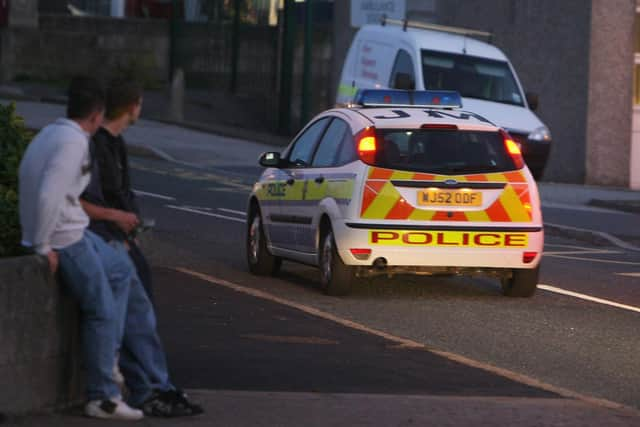Teenagers carrying out anti-social behaviour for TikTok fame must be dealt with firmly by the courts and police – Stephen Jardine
The only three certainties in life are death, taxes and teenagers having nothing to do. Death has been around as long as life itself and the first taxation can be traced back to ancient Rome. It’s reckoned that Pitt the Younger only got into politics because he was “so bored” and had nothing else to do, but that might just be conjecture.
Down the years, a lack of youth clubs has been blamed for everything from shoplifting and wilful fire-raising to acne and an increase in chlamydia. However, that just doesn’t wash anymore.
Advertisement
Hide AdAdvertisement
Hide AdTeenagers nowadays have more to do than at any time in history. Across the UK, more than 7,000 organisations offer them support and ways to network and interact. Furthermore, most now own a device that offers them endless round-the-clock connections and entertainment. Research by Ofsted showed 96 per cent of children aged 12 to 15 now have a smartphone, rising to 98 per cent of 16 to 17-year-olds. Compared to what their parents had, the teenage years are now an endless theme park of opportunities with wall-to-wall games and TV and radio shows.
‘Broken window’ theory of crime
So the old ‘bored’ chestnut is no excuse for the anti-social behaviour which has forced McDonald’s in Fort William to ban under-18s from setting foot on the premises after 6pm. The fast food brand said it acted to protect workers from verbal abuse. Elsewhere in Fort William, a number of teenage boys were banned from the Highland Cinema over anti-social behaviour and the town’s public toilets have been shut after being targeted by vandals six times in a year.
This isn’t about boredom. Organisations like Fort William Youth Development and Caol Youth Centre offer endless opportunities for things to do. This is about getting away with it. If the police struggle to deal with anti-social behaviour and courts don’t treat it seriously, then troublemakers become bold and things escalate.
When New York decided to tackle a notorious reputation for crime in the 1980s, it started by mending broken windows, on the basis that minor neglect encourages far bigger problems to develop. A get-tough policy on low-level offences followed, leading to a 56 per cent drop in violent crime and a 65 per cent fall in property crime.


So tolerating or excusing youth disorder doesn’t work and law enforcement has a responsibility to enforce the anti-social behaviour legislation that is in place. Parents also need to be talking to their kids, asking difficult questions and maybe checking their social media feeds.
The law cannot become ‘a joke’
That’s the big new factor in all of this. As soon as anything kicks off anywhere, someone will be filming it and posting it on TikTok. That’s why Nepal last week became the latest country to ban the platform for the damage it does to ‘social cohesion’.
TikTok prankster Mizzy was in court again this week after posting more anti-social videos targeting the public including one where he said: “UK law is a joke.” He wasn’t laughing when he was sentenced to 18 weeks’ youth detention.
No one wants to see any young person starting life with a criminal record but actions have consequences and that message needs to be clear and real. At the end of the day, a jail cell really is a boring place for anyone of any age.